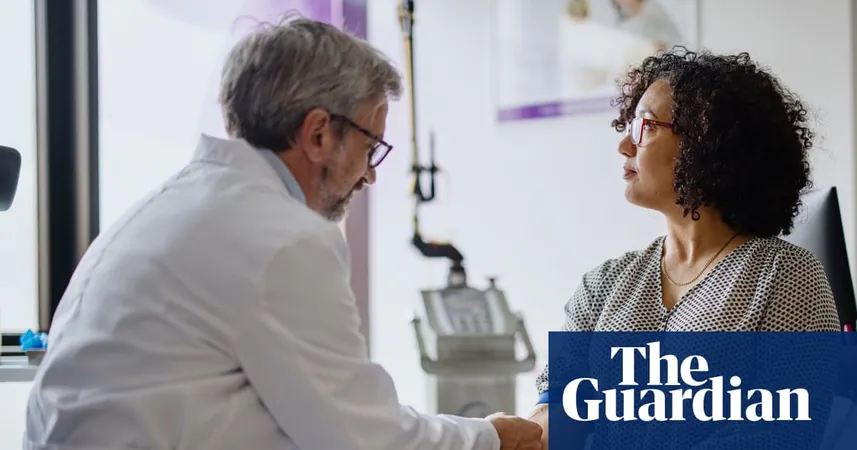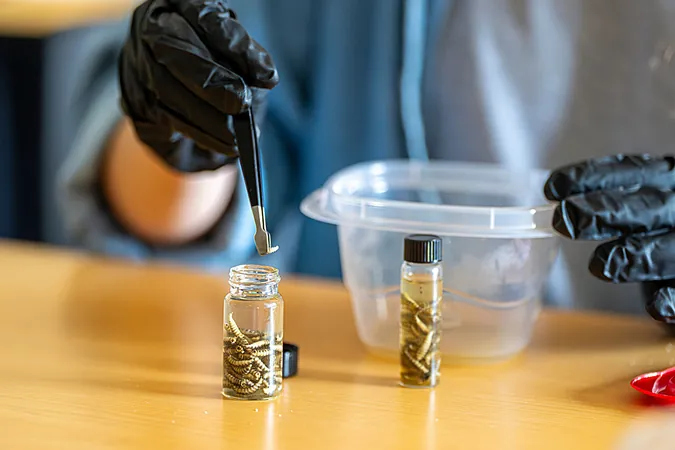
Beware: Private Menopause Tests Are Misleading Women and Threatening NHS Care!
2025-09-07
Author: Noah
Private Menopause Tests: A Risky Business?
In a shocking revelation, senior doctors have declared that pricey, over-the-counter menopause hormone tests not only lack clinical value but could also endanger women's healthcare. Offered by private clinics and available for self-testing, these kits promise tailored insights by measuring hormone levels, but experts are blowing the whistle on their effectiveness.
Experts Speak Out: A Waste of Money
Dr. Stephanie Sterry, a contributor to a recent BMJ editorial titled *Menopause Misinformation is Harming Care*, voiced her concerns, stating, "These tests are misleading and medically unnecessary. Women are being encouraged to spend hundreds of pounds on tests that don't improve treatment outcomes."!
Two main types of these menopause hormone kits are available in the UK: rapid urine tests that promise results in just two minutes, and finger-prick blood tests sent for analysis. Prices vary significantly, with urine tests available for as little as £8 and blood tests costing anywhere from £32 to a whopping £189!
The Medical Consensus: Skip the Tests!
Guidelines from reputable medical organizations—including Nice, the American College of Obstetricians and Gynecologists, and the British Menopause Society—unanimously agree that for women over 45, menopause should be diagnosed based solely on symptoms. Since hormone levels vary daily, they offer no reliable diagnostic value.
Dr. Paula Briggs, chair of the British Menopause Society, highlighted the dangers of these tests, stating, "The growing popularity has led to unrealistic expectations surrounding Hormone Replacement Therapy (HRT). This contributes to the demand for unregulated and pricey treatments like bioidentical hormones."
Women Are Confused: A Crisis in Care
Experts like Dr. Susanna Unsworth confirm an alarming trend: women often arrive at appointments armed with results from these tests, only to be told they hold little to no significance in treatment. "When I explain that these results don’t add value, it undermines their trust in me," she explained.
A Defending Voice: Are Tests Helpful?
While many in the medical community advise against these tests, Dr. Martin Thornton from Bluecrest wellness defended their existence, stating they can empower women by providing data that correlates with symptoms. Yet, this argument doesn’t align with current evidence.
The Bottom Line: Stick to Symptoms, Not Numbers!
Dr. Sterry concluded emphatically, "Hormone testing in menopause treatment is not supported by evidence and does not improve care. Treatment should hinge on patients' individual symptoms, not on arbitrary numbers." Women need to be informed about these misleading tests and focus on what truly matters—understanding their symptoms.
Shifting the Focus: NHS Care Is Key
Amidst rising economic pressures and commercialized options, experts emphasize the need for collaborative, NHS-led care rather than private, profit-driven alternatives. It's crucial for women's health to tackle these misleading practices head-on to ensure informed treatment decisions.









 Brasil (PT)
Brasil (PT)
 Canada (EN)
Canada (EN)
 Chile (ES)
Chile (ES)
 Česko (CS)
Česko (CS)
 대한민국 (KO)
대한민국 (KO)
 España (ES)
España (ES)
 France (FR)
France (FR)
 Hong Kong (EN)
Hong Kong (EN)
 Italia (IT)
Italia (IT)
 日本 (JA)
日本 (JA)
 Magyarország (HU)
Magyarország (HU)
 Norge (NO)
Norge (NO)
 Polska (PL)
Polska (PL)
 Schweiz (DE)
Schweiz (DE)
 Singapore (EN)
Singapore (EN)
 Sverige (SV)
Sverige (SV)
 Suomi (FI)
Suomi (FI)
 Türkiye (TR)
Türkiye (TR)
 الإمارات العربية المتحدة (AR)
الإمارات العربية المتحدة (AR)